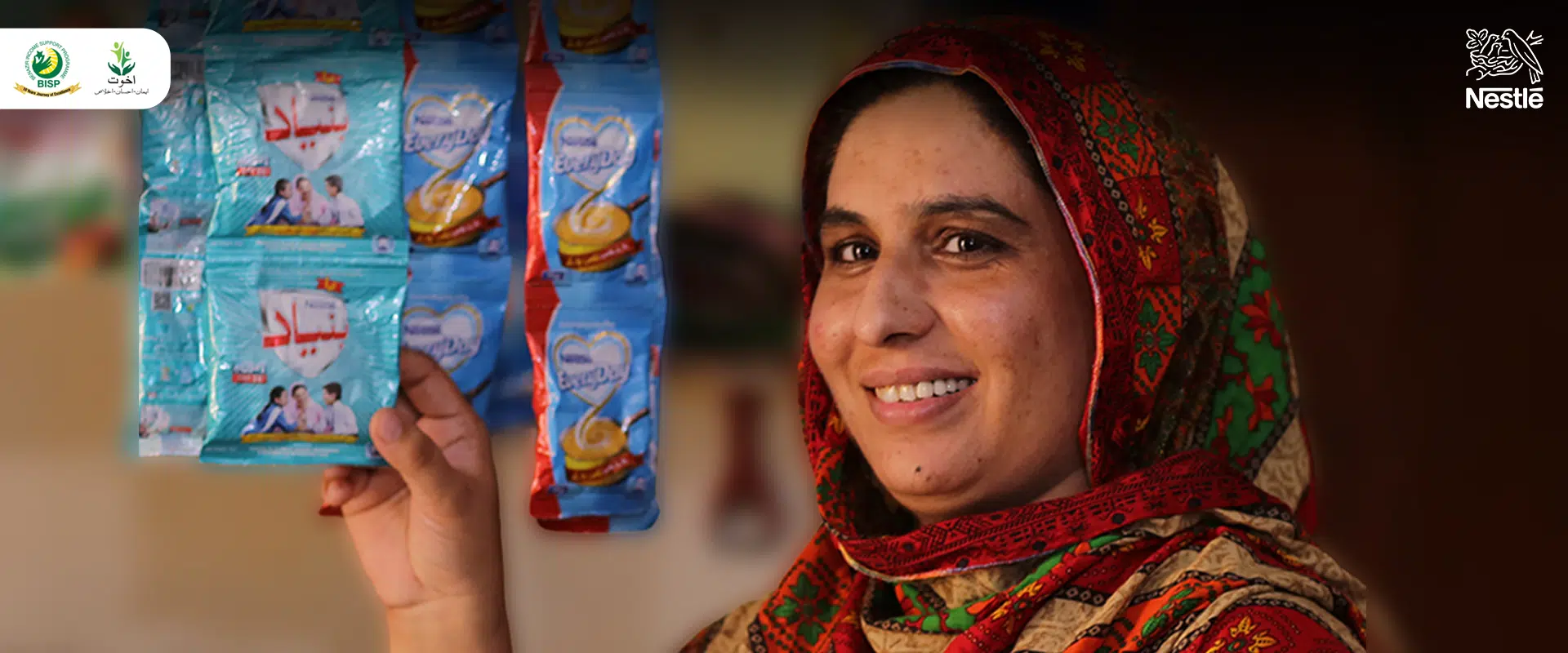Nestle Pakistan and BISP Empower Rural Women
In a heartwarming collaboration, Nestle Pakistan joined forces with the Benazir Income Support Program (BISP) to create the Nestle BISP Rural Women Sales Program. This initiative is aimed to change the lives of rural women in Pakistan by offering them a chance to improve their livelihoods through selling Nestle products.
The BISP, launched in 2008, is Pakistan’s unconditional cash transfer program, providing financial assistance to eligible individuals every quarter. Nestle Pakistan’s partnership with BISP added a new dimension to this support, focusing on empowering women in rural areas.
The core concept of this initiative revolves around fostering public-private partnerships to enhance employment opportunities for the country’s poorest segments, enabling them to improve their livelihoods.This partnership with Nestle is just the beginning, as BISP is committed to increasing such collaborations under Corporate Social Responsibility (CSR) with the private sector.
The effectiveness of public-private partnerships in poverty alleviation, citing the Nestle collaboration as a shining example. When women have control over their financial circumstances, the impact is tangible and transformative.
Nestle Pakistan has partnered with Akhuwat Pakistan
The Nestle BISP Rural Women Sales Program has made significant progress since its inception. Nearly 2,700 BISP beneficiaries have become Sales Agents through this program. Additionally, Nestle Pakistan has partnered with Akhuwat Pakistan, the largest interest-free microfinance program in the country, to improve access to finance. Microloans are being disbursed to women entrepreneurs seeking to expand their businesses, promoting financial inclusion among these underprivileged women.
The program has not only brought economic upliftment but also broader social empowerment. Traditionally, women in rural Pakistan have faced barriers to participating in structured economic activities. However, this initiative has opened doors for these women to venture into the retail business, paving the way for economic independence and greater financial inclusion.
By breaking down these barriers, the BISP Rural Women Sales Program is helping the “poorest of the poor” women achieve economic empowerment. It is a testament to the commitment of BISP Pakistan in pursuing Sustainable Development Goals (SDGs), particularly No. 5 (Gender Equality) and No. 8 (Decent Work and Economic Growth). Together, they are dedicated to empowering and providing livelihood opportunities to marginalized rural women across Pakistan.
This heartwarming initiative serves as a shining example of how public-private partnerships can make a real difference in the lives of those who need it most, reaffirming the belief that a level playing field for women can lead to lasting prosperity and social transformation.
How to Register in Rural Livelihood Program 2023
If you want to Register in the Rural Livelihood Program you must be registered with BISP and a woman because this program is only for women of rural areas of Pakistan, Nestle, like many other companies and organizations, chooses to focus on empowering women for several reasons:
- Gender Equality and Social Responsibility: Promoting gender equality is a fundamental aspect of social responsibility. Nestle recognizes its role in creating positive societal impacts and believes in contributing to a world where gender discrimination is reduced, and women have equal opportunities.
- Diverse Talent Pool: By actively engaging women, Nestle can tap into a broader talent pool. Gender diversity in the workforce can lead to a variety of perspectives and approaches to problem-solving, fostering innovation and creativity.
- Market and Consumer Dynamics: Women often make key purchasing decisions for households. By understanding and engaging with female consumers and workers, Nestle can better serve its target markets.
- Economic Empowerment: Empowering women economically can have a significant impact on local communities and economies. When women earn income and become financially independent, it can lead to improved living standards, education, and healthcare for their families.
